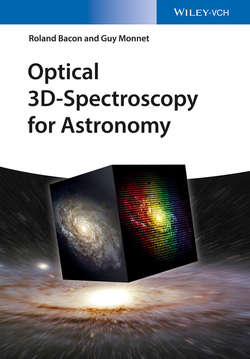Описание книги
Over the last 50 years, a variety of techniques have been developed to add a third dimension to regular imaging, with an extended spectrum associated to every imaging pixel. Dubbed 3D spectroscopy from its data format, it is now widely used in the astrophysical domain, but also inter alia for atmospheric sciences and remote sensing purposes. This is the first book to comprehensively tackle these new capabilities. It starts with the fundamentals of spectroscopic instruments, in particular their potentials and limits. It then reviews the various known 3D techniques, with particular emphasis on pinpointing their different `ecological? niches. Putative users are finally led through the whole observing process, from observation planning to the extensive ? and crucial – phase of data reduction. This book overall goal is to give the non-specialist enough hands-on knowledge to learn fast how to properly use and produce meaningful data when using such a 3D capability.
